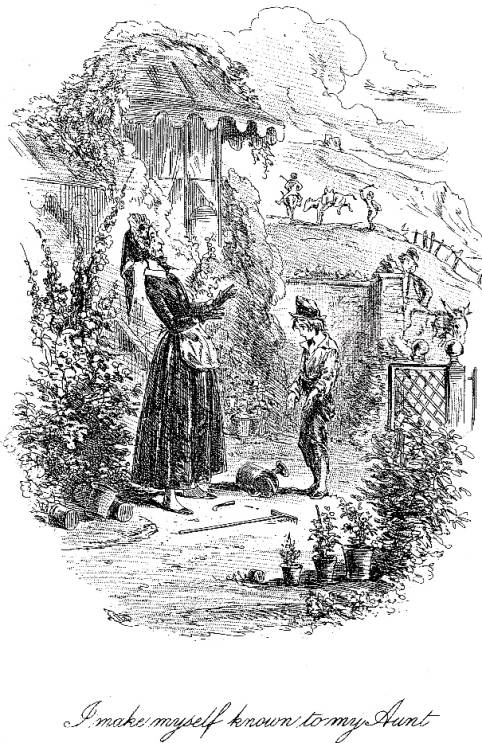Julia and I listened to some more of David Copperfield as we drove back from Massachusetts yesterday (see Monday’s post on the novel). As we had spent some of the weekend with our grandson Alban and as Dickens’ novel deals with issues of character formation, we talked about optimal ways to develop a child’s character. We were particularly struck by how David is treated by his admirable aunt, Betsy Trotwood.
David essentially seeks out the person who will raise him right. Early in the book when he acquires a stepfather, his life becomes a living nightmare, especially after his mother dies. Finally driven to desperate measures, David runs away from his stepfather’s business and seeks refuge with his eccentric, blunt, but ultimately loving aunt. In one of the book’s most satisfying scenes, she tells off his stepfather when he comes to reclaim David. Almost as satisfying are her words of admonition to the grateful David when she finds a good school for him:
I was greatly overcome, and could only thank her, again and again…
“Never,” said my aunt, “be mean in anything; never be false; never be cruel. Avoid those three vices, Trot, and I can always be hopeful of you.”
The passage reminded me of my own two rules for my children when they were growing up. “Respect other people,” I told them, “and don’t ride your bike on Mattapany.” Mattapany (emphasis on the last syllable) is a road without shoulders—my kids had other options for getting to the college where I teach—so essentially I was telling them, “and don’t do anything stupid.”
But simply lecturing is not enough. Betsy’s words carry weight because she lives the life that she preaches. She has integrity and a kind of nobility. She also has respect for people who are worthy of respect, including the feeble-minded Mr. Dick, whom she has saved from a mental asylum. She not only takes him in but asks him for advice on important matters—and he often surprises by, in his very simplicity, coming up with the perfect suggestion for the occasion.
Much of David Copperfield, I think, is driven by the author’s rage at the lack of respect that adults accord to children (and to child-like adults). David’s stepfather is particularly villainous because he tries to bend people to his will, and he destroys David’s mother in the process. It was a joyous experience watching our son accord the same respect to our grandson that we accorded to him and his two brothers. Alban, who is a year and a half, doesn’t always get his way but he is always listened to.
I’m particularly impressed with Alban’s extensive sign vocabulary, which lets us know what he wants. He frequently signed to me that he wanted to be read to. (We alternated between Hippos Gone Berserk and The Little Blue Truck.)
Nineteenth Century literature is filled with images of children who are physically or emotionally abused: Blake’s chimney sweep, practically all of Dickens (Oliver Twist, Nicholas Nickleby, Hard Times), Jane Eyre, Alice in Wonderland, Water Babies. The authors challenge their readers to step away from a vision of children as little passive vessels and teaches us to see them as having interior lives. Novels, in other words, not only help form the character of children but of their parents as well. David Copperfield does this as well as any work of the time.


